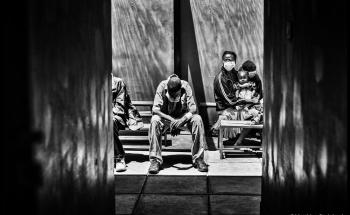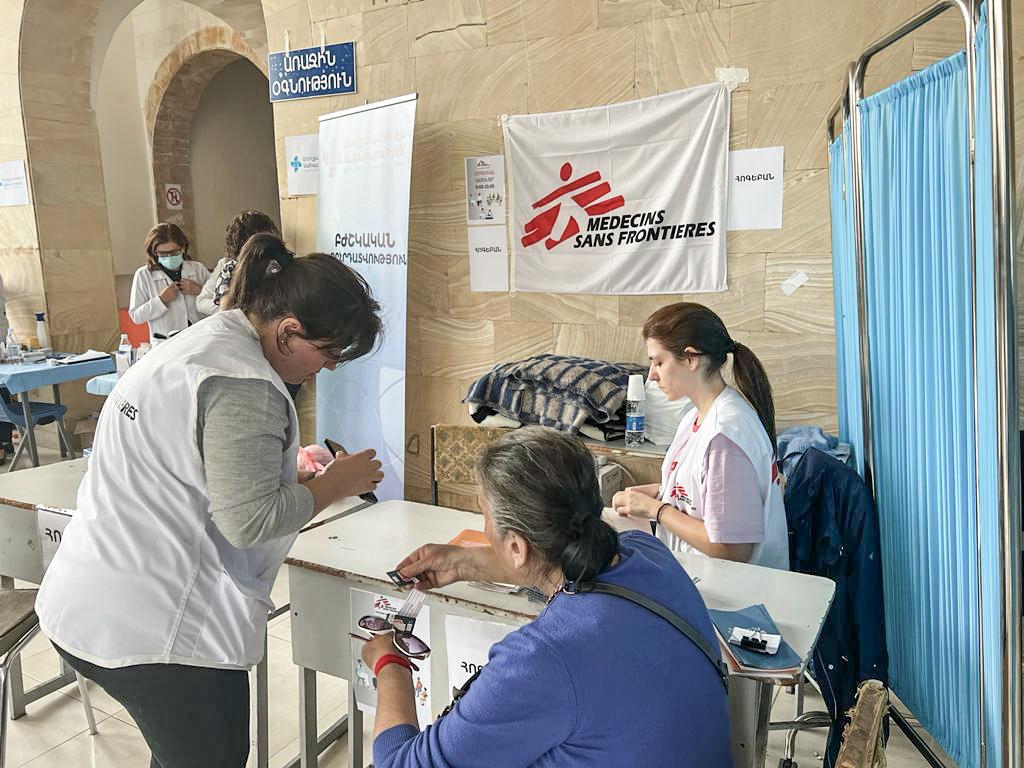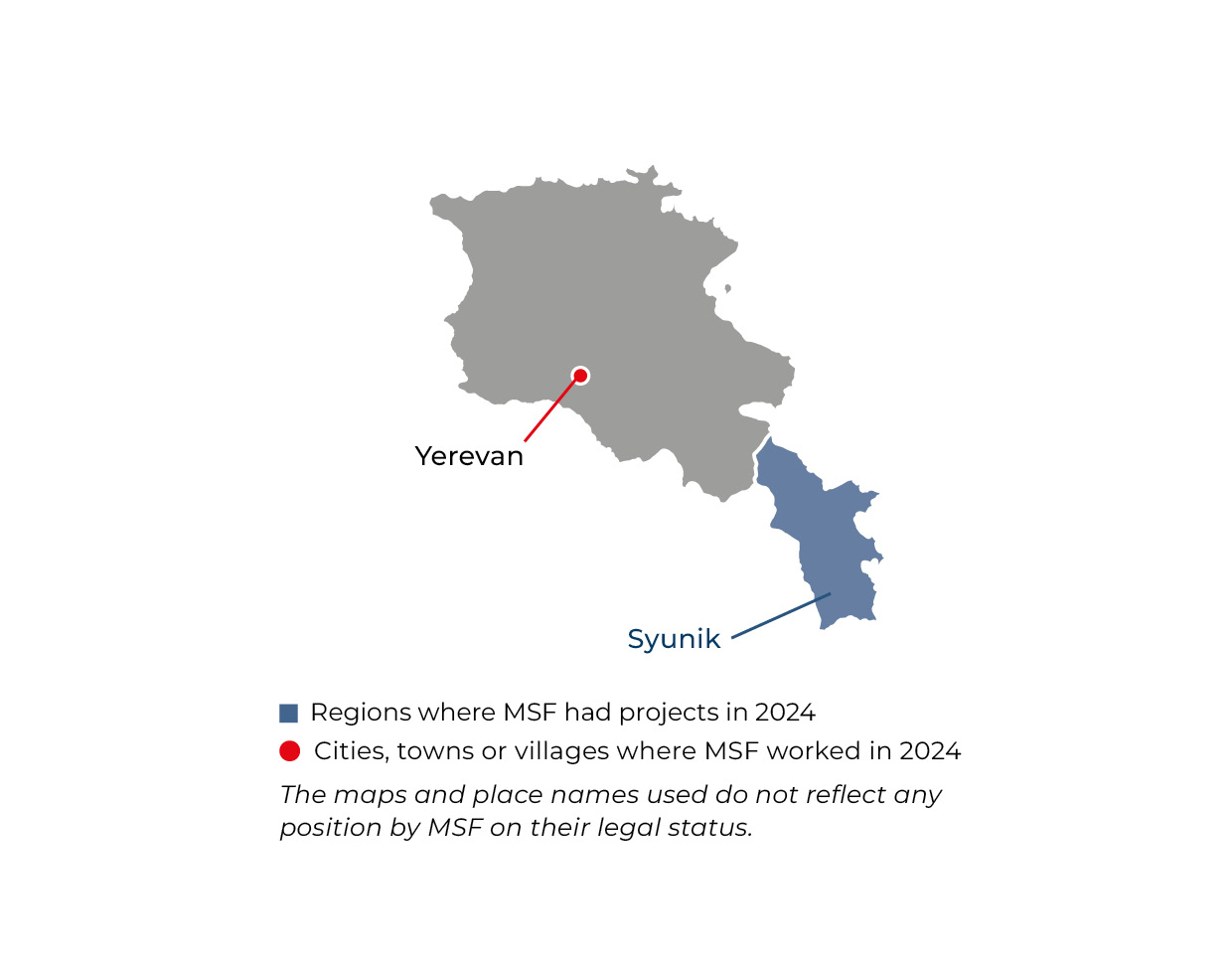

Armenia
After more than 100,000 people fled into Armenia following the conflict in Nagorno-Karabakh – a territory internationally recognised as part of Azerbaijan, Doctors Without Borders (MSF) responded by providing psychological consultations, where our teams assessed people’s medical and social needs, and connected them to additional resources and care.
Our aim was to ensure their well-being and offer practical assistance to support their integration into Armenian society. In March 2024, we ended these activities.
Our activities in Armenia in 2024
Data and information from the International Activity Report 2024.
38
38
€1.9 M
1.9M
1988
1988

In the capital, Yerevan, MSF continues to run a project to address the high prevalence of hepatitis C, a disease affecting four per cent of the population, one of the highest rates in the region.
In close collaboration with the Ministry of Health and local municipalities, we support testing and treatment at Arshakunyats polyclinic. The project aims to reduce the incidence of hepatitis C and improve health outcomes for patients diagnosed with the disease, including people in prisons, who are particularly vulnerable to infection.
In April, the clinic inaugurated a unit designed to meet the specific and sometimes neglected needs of key communities. In this unit, MSF focuses on offering hepatitis C care to men who have sex with men, people who engage in sex work, and people who use drugs. We implement a ‘one-stop-shop’ model, which integrates screening, diagnosis, treatment, and support services in a single, stigma-free location to streamline care and encourage treatment adherence.

67
67
600
6
